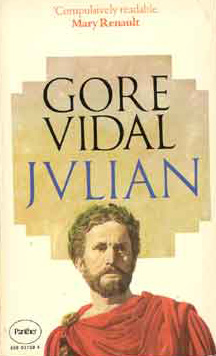Before reading last year J. A. Sexton’s review of Thomas Goodrich’s Hellstorm: The Death of Nazi Germany, 1944-1947, I knew nothing of what the Allied forces had done to defenseless Germans during and after the Second World War.
I confess that, throughout most of my adult life, I was infected with anti-Nazi hatred due to my mind having been colonized with films, books that I read, articles and documentaries about the evils of National Socialist Germany. Little did I realize then that the War propaganda has not really ended, which made me demonize the Third Reich in my inner thoughts for many years—the System simply had covered up the history of what actually happened from 1944 to 1947.
Now that thanks to Hellstorm I have awakened to the real world I am moved to, in memory of the millions of men, women and children tormented and murdered by the Allies, keep a moment of silence out of respect for the victims. Freezing this site for a while with this entry at the top will provide visiting westerners in general, and Germans in particular, the opportunity to find out the grim facts about an unheard of Holocaust perpetrated on Germanic people—a real Holocaust in every sense of the word.
As to the perpetrators of the crime of the age, in his Gulag Archipelago, Solzhenitsyn, who in his younger years was involved in the rape and murder of civilian Germans, wrote:
There is nothing that so aids and assists the awakening of omniscience within us as insistent thoughts about one’s own transgressions, errors, mistakes. After the difficult cycles of such ponderings over many years, whenever I mentioned the heartlessness of our highest-ranking bureaucrats, the cruelty of our executioners, I remember myself in my captain’s shoulders boards and the forward march of my battery through East Prussia, enshrouded in fire, and I say: “So were we any better?” And that is why I turn back to the years of my imprisonment and say, sometimes to the astonishment of those about me:
“Bless you, prison!”…
In prison, both in solitary confinement and outside solitary too, a human being confronts his grief face to face. This grief is a mountain, but he has to find space inside himself for it, to familiarize himself with it, to digest it, and it him. This is the highest form of moral effort, which has always ennobled every human being. A duel with years and with walls constitutes moral work and a path upward… if you can climb it.
Through tragic personal experience I corroborated that processing the mountain of grief was, certainly, the only way to develop the soul. Only the rarest among the rare have climbed the path. Which is why in no website that I know in this hedonistic age the forced initiation is taken seriously. But there are exceptions… In the comments section of this site, Goodrich wrote:
I wrote the above book…
I died a thousand deaths in so doing…
Yet I felt I had to finish it—for them.
Thanks to Mr. Sexton for his review.
Like himself, I have never been the same man since.
I am sad… but I am also extremely mad… extremely mad.
Last weeks I had to pause during my agonic reading of Hellstorm by talking frequent breaks, but like the author I had to digest the sins that the West committed against itself—and besides feeling outraged paradoxically I also feel strangely calm and liberated now. The psychological causes of self-loathing among present-day westerners had been an enigma. The idea is dawning in my mind that the last words quoted by Goodrich in the last page of his book provide an answer:
We had turned the evil of our enemies back upon them a hundredfold, and, in so doing, something of our integrity had been shattered, had been irrevocably lost.
Alas, since Anglo-Saxons did not examine their conscience but instead still celebrate their having led the “civilized” world in ganging up on Germany, the moral integrity of this subgroup of the white world is gone. Forever gone. And precisely because of the unredeemed character of this sin, what the former Allies did in Hitler’s Germany has created a monster from the Id that has been destroying our civilization since then: a lite Morgenthau Plan for all white people.
It is true that I have abandoned Christianity. But I still believe in the salvific effects of the triad examining conscience, repentance and atonement: the painful soul-building that Solzhenitsyn experienced in his cell (though, it must be said, not as a penalty for his having massacred civilian Prussians). If, unlike him, we haven’t had the opportunity of being committed to a gulag prison, let us experience, in the gloomy solitude of our bedrooms, the same painful yet awakening process through pondering on the historical events exposed in Goodrich’s book.
Prison causes the profound rebirth of a human being… profound pondering over his own “I”… Here all the trivia and fuss have decreased. I have experienced a turning point. Here you harken to that voice deep inside you, which amid the surfeit and vanity used to be stifled by the roar from outside…
Your soul, which formerly was dry, now ripens from suffering…

